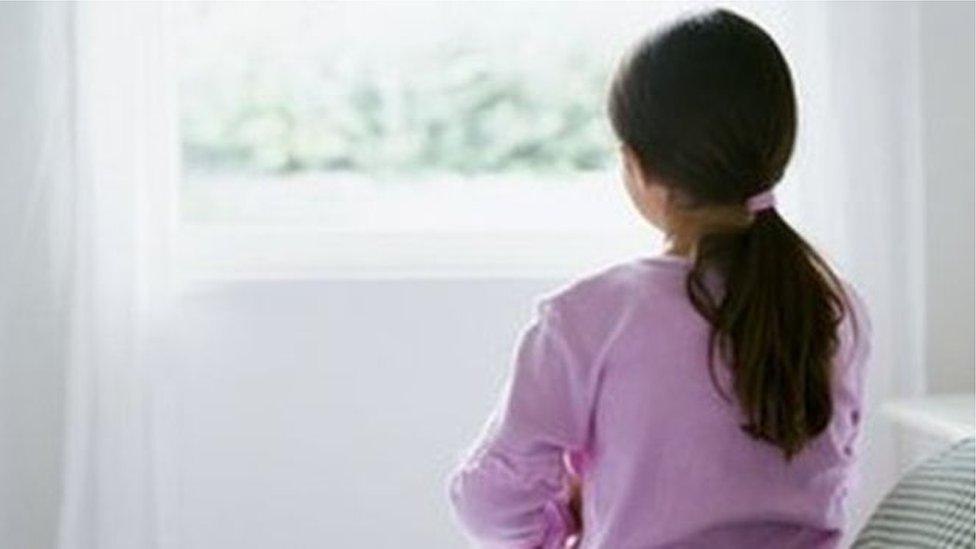Sexual offences against children increase
- Published

The rise is thought to be partly down to victims feeling more confident about disclosing abuse
The number of recorded sexual offences against children in Scotland has risen by 9% in the last year, official figures show.
The most common form of offence related to indecent images of children.
NSPCC Scotland found there were 4,762 offences recorded by Police Scotland in 2016/17, up from 4,368 in the previous year.
A number of cases are believed to relate to non-recent child sexual offences.
The rise is being partly put down to victims feeling more confident about disclosing abuse following high-profile cases.
Improved police recording methods are also believed to be a factor.
NSPCC Scotland has now called for improvement in support for victims.
The figures were obtained from the Scottish government after being collated by Police Scotland.
They follow a similar trend UK-wide where the number of offences increased from 56,324 to 64,667 over the same period.
'Worrying trend'
Matt Forde, national head of service for NSPCC Scotland, said: "These figures show a worrying trend in offending against children and should be a red flag to both the public and the government.
"Sexual abuse can destroy a child's life, leaving them feeling ashamed and depressed or even suicidal, so it takes incredible courage to come forward and report this to the authorities.
"That improved confidence is welcomed but our greatest concern is that, against this backdrop of increasing offending and reporting, our recent research of data and integrated children's plans across the country found very little provision to help victims recover following sexual abuse."
The NSPCC said the availability of recovery services was "patchy and inconsistent", with delivery relying on third sector organisations.
The charity is calling for the creation of a "Children's House" model where victims can undergo all necessary medical, forensic and therapeutic services at a single location.
Mr Forde added: "Many services that do exist are fragile, insecure and unable to meet demand and this picture has not changed in the past 10 years.
"This has to change so children and young people who have been sexually abused can get the vital help they need to rebuild their lives."